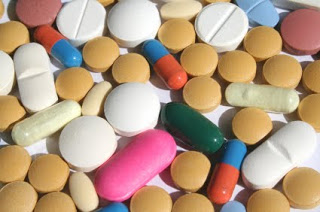While bariatric surgery is a very effective treatment of obesity for many people, some people don’t lose as much weight as expected, and some struggle with weight regain.
Today’s question: Can obesity medications help with weight management after bariatric surgery?
A retrospective study of 209 patients who had either regained at least 5% of their lowest weight, or had lost <50% of their excess weight after bariatric surgery, looked at the effect of obesity medication in these patients. Medications were started a median of 38 months after surgery. Ten patients were prescribed naltrexone/bupropion (Contrave), 12 received liraglutide at diabetes treatment doses (1.2-1.8mg), 156 received phentermine (not available in Canada), 25 received phentermine/topiramate (Qsymia, not available in Canada), and 25 received lorcaserin (withdrawn from the US market, never available in Canada). [note: obesity medications liraglutide 3mg (Saxenda) and semaglutide 2.4mg (Wegovy) were not yet approved at the time of this study (2010-2015)]. They found that more than 1 in 3 patients achieved at least 5% weight loss after a year on medication. Those who had the greatest benefit were those who had gastric banding as their surgery, likely because banding produces the least weight loss of all bariatric surgeries to begin with, and also because banding doesn’t alter gut hormones in favor of satiety (whereas gastric bypass and sleeve gastrectomy do).
Another retrospective analysis of 207 people seeking treatment for post bariatric weight regain looked at the effect of intensive lifestyle modification (ILM) alone, GLP1 receptor agonists (GLP1RA) with ILM, vs non-GLP1RA obesity medications with ILM. The average weight regain in participants after bariatric surgery was 40% of lost weight. About half of patients had had gastric bypass or biliopancreatic diversion with duodenal switch, 22% had sleeve gastrectomy or gastroplasty, and 23% had had gastric banding. They found that GLP1RA with ILM was superior to ILM alone after 9 months, but there was no significant difference at 1 year. That being said, the numbers in the study dwindled greatly by 1 year, and it’s hard to know what to make of data when the number of participants is so small.
A prospective study of liraglutide 3mg was conducted in 95 patients who had had gastric bypass surgery an average 9 years prior. Patients who had regained at least 10% weight from their lowest weight post surgery were offered liraglutide (n=34), endosurgery to reinstall restriction (overstitch system, n=15), pouch resizing with Fobi ring(n=16), and compared to controls who had regained less than 10% of their lowest weight. At 24 months, they found that liraglutide 3mg was effective for weight loss (-12kg). Pouch resizing surgery was also effective (-17kg), whereas endosurgery was minimally effective (-3kg at 12months). With liraglutide and pouch resizing, patients achieved a weight similar to their lowest weight after gastric bypass surgery. Whereas liraglutide was well tolerated, over a third of the pouch resizing group experienced complications after revisional surgery.
BOTTOM LINE: We have emerging evidence to support a benefit of obesity medication to help people struggling with weight management after bariatric surgery.
Disclaimer: I am an investigator and coauthor of several studies of liraglutide and semaglutide. I receive honoraria as a continuing medical education speaker and consultant from the maker of liraglutide and semaglutide (Novo Nordisk), and naltrexone/bupropion (Bausch).
Share this blog post using your favorite social media link below!
Follow me on twitter! @drsuepedersen
www.drsue.ca © 2022












